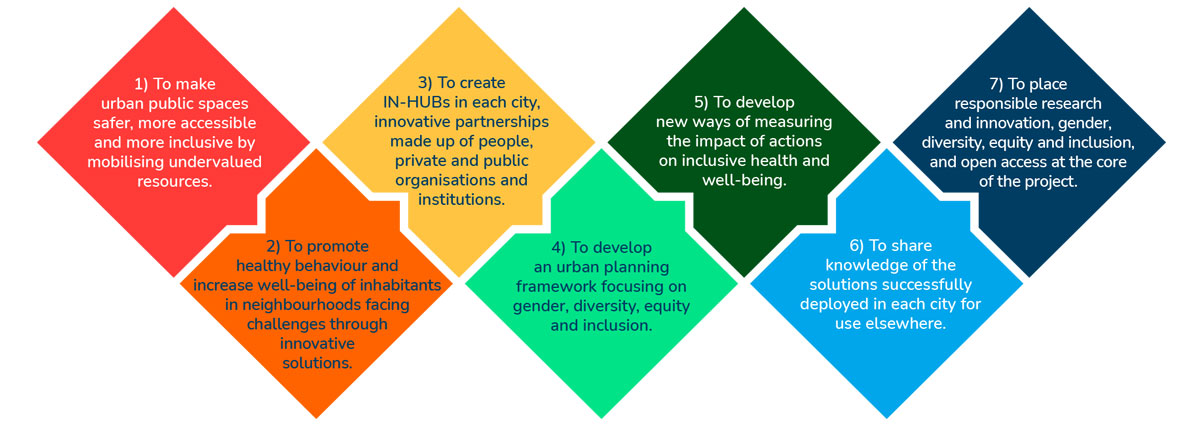Objectives
Cities play a pivotal role in steering the transition towards a sustainable society and in promoting, preventing and mitigating socioeconomic inequalities in the access to health and wellbeing among urban dwellers.
In Europe, the majority (65%) of the urban population lives in cities with fewer than 500,000 inhabitants. However, most urban research and innovation (R&I) and resources are located in Central and Nordic countries and in large cities, while the most pressing urban challenges tend to be found in the periphery and in SMSCs. Europe thus faces important R&I gaps to cater for the needs of these smaller cities.
General Aim
IN-HABIT's aim is to investigate inclusive health and wellbeing (IHW) in peripheral SMSCs by mobilising local undervalued resources (culture and heritage, food, human-animal bonds, environment and art) through visionary and integrated solutions (VIS), co-designed, co-developed and co-managed by local inhabitants and relevant stakeholders.

Specific Goals
Over the project’s five-year duration, IN-HABIT will strive to meet the following specific goals with the aim of fostering inclusive health and wellbeing in small and medium-sized cities:

IN-HABIT will advance knowledge on the health and wellbeing R&I needs of peripheral SMSCs, define frameworks for the collection of data at a city-level, and elaborate data to monitor both the city-level evolutionary trajectories and the impact of policy actions. The results will enhance our understanding of how peripheral SMSCs work in practice.
Moreover, the project will boost IHW in the four pilot cities, delivering high quality, multifunctional, public spaces able to integrate digital, social, cultural and nature-based innovations to enhance health and wellbeing. IN-HABIT will use participatory approaches in re-designing and transforming public spaces to increase health and wellbeing in cities through innovative public-private-people partnerships. It will help European cities become world ambassadors of sustainable lifestyles, providing universal access to greener, safe, inclusive and accessible public spaces.
